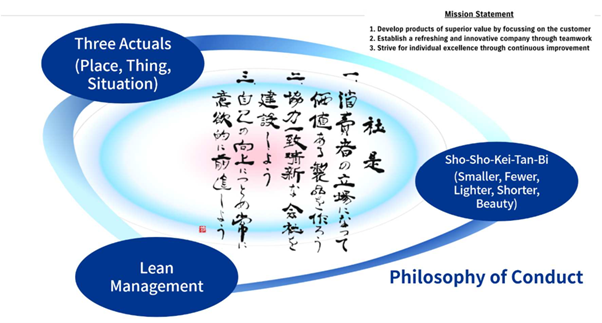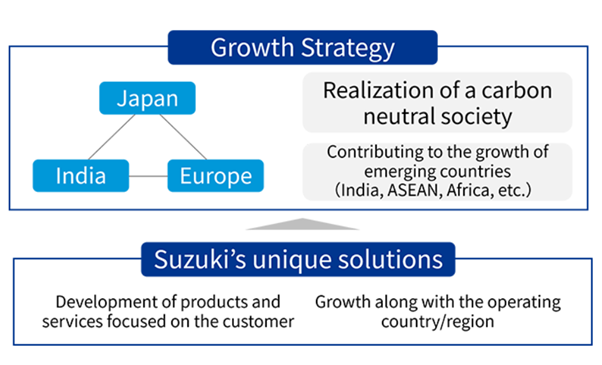Disclaimer
Stratton Finance Pty Ltd Australian Credit Licence No.364340, AFCA Member, and FBAA Member.
Information is valid as at 01/08/2024 and subject to change. Suzuki Australia Pty Ltd is a trademark of Suzuki (ABN 57 001 828 164).
Information is current as at 21/05/2024 and subject to change.
All applications for credit are subject to lender assessment and eligibility criteria. Terms, conditions, fees and charges apply.
Suzuki Finance is a trading name of Suzuki Australia Pty Limited ABN 57 001 838 164 and has partnered with Stratton Finance ABN 63 070 636 903 Australian credit licence 364340 an asset finance broker that has access to a panel of lenders that offer marine and motor finance.
Suzuki Marine may receive a financial benefit for referrals that result in a settled loan with one of Stratton Finance’s panel of lenders.
*Interest rates range from 6.98% p.a. – 17.49% p.a.. (Comparison rates range from 8.07% p.a. – 18.44% p.a.^). The actual interest rate will depend on the borrower’s circumstances and financial situation.
^Comparison rates are calculated on a secured loan of $30,000 and a term of 5 years. WARNING: The comparison rate is true only for the examples given and may not include all fees and charges. Different terms, fees or other loan amounts might result in a different comparison rate.
Personal information is collected, used, stored and disclosed in accordance with Stratton Finance’s Privacy Policy (https://www.strattonfinance.com.au/privacy-policy) and Suzuki Finance’s Privacy Policy (https://www.suzukimarine.com.au/privacy).
Disclaimer
*‘Sail Away’ on 2.5 to 30hp tiller-controlled models the price includes dealer pre-delivery charges. Tiller models 40HP and above excludes pre-delivery costs.
*Summer Steals promotional price on tiller models 70HP and above excludes pre-delivery costs.
“Manufacturer’s Suggested Retail Price” (MSRP) excludes fitting and associated costs.
‘Sail Away’ on Suzumar inflatable boat package includes the inflatable boat, outboard motor, and associated pre-delivery charges. Excludes trailer and fitment to a trailer.
^ Comparison rate is calculated on a secured consumer fixed rate loan of $30,000 for a term of 5 years. WARNING: This comparison rate is true only for the examples given and may not include all fees and charges. Different terms, fees or other loan amounts might result in a different comparison rate.
Information provided is factual information only, and is not intended to imply any recommendation about any financial product(s) or constitute tax advice. If you require advice you should consult a licensed financial or tax adviser.
Stratton Finance Pty Ltd Australian Credit Licence No.364340, AFCA Member, and FBAA Member.
Information is valid as at 01/08/2024 and subject to change. Suzuki Australia Pty Ltd is a trademark of Suzuki (ABN 57 001 828 164).
Information is current as at 21/05/2024 and subject to change.
All applications for credit are subject to lender assessment and eligibility criteria. Terms, conditions, fees and charges apply.
Suzuki Finance is a trading name of Suzuki Australia Pty Limited ABN 57 001 838 164 and has partnered with Stratton Finance ABN 63 070 636 903 Australian credit licence 364340 an asset finance broker that has access to a panel of lenders that offer marine and motor finance.
Suzuki Marine may receive a financial benefit for referrals that result in a settled loan with one of Stratton Finance’s panel of lenders.
*Interest rates range from 6.98% p.a. – 17.49% p.a.. (Comparison rates range from 8.07% p.a. – 18.44% p.a.^). The actual interest rate will depend on the borrower’s circumstances and financial situation.
^Comparison rates are calculated on a secured loan of $30,000 and a term of 5 years. WARNING: The comparison rate is true only for the examples given and may not include all fees and charges. Different terms, fees or other loan amounts might result in a different comparison rate.
Personal information is collected, used, stored and disclosed in accordance with Stratton Finance’s Privacy Policy (https://www.strattonfinance.com.au/privacy-policy) and Suzuki Finance’s Privacy Policy (https://www.suzukimarine.com.au/privacy).
Suzuki Motor Corporation announced its Growth Strategy for FY2030. With the motto to deliver “value-packed products” by focusing on the customer, Suzuki will carry out its unique Growth Strategy for FY2030 by operating under the principle of manufacturing “Sho-Sho-Kei-Tan-Bi (Smaller, Fewer, Lighter, Shorter, Beauty)”, “Lean Management” which emphasizes flexibility, agility, and the challenging spirit, and the “Three Actuals” principle, which omits impracticality and focuses on the actual place, thing, and situation.

For FY2030, Suzuki will contribute to the realization of a carbon neutral society and the economic growth of emerging countries such as India, ASEAN, and Africa, with our main business regions, Japan, India, and Europe, as the core. We will focus on creating solutions that are unique to Suzuki, which are to develop products and services focused on the customer, and grow along with the operating countries and regions.

AUTOMOBILES
In Japan, starting with the introduction of commercial mini-vehicle battery EVs in FY2023, we plan to introduce compact SUVs and passenger mini-vehicles, with 6 models to be launched by FY2030. In addition, we will develop new hybrids for mini and compact vehicles, and by combining them with battery EVs, we will offer various options for our customers. In Europe, we will introduce battery EVs in FY2024, expand to SUVs and B-segments, with 5 models to be launched by FY2030. We will respond flexibly to environmental regulations and customer needs in each European country. In India, we will introduce the SUV battery EV announced at the Auto Expo 2023 in FY2024, with 6 models to be launched by FY2030. To provide a full range of products and services, Suzuki will provide not only battery EVs but also carbon neutral internal combustion engine vehicles that use CNG, biogas, and ethanol mixed fuels.
(BATTERY EV INTRODUCTION PLAN)

MOTORCYCLES
For small and mid-sized motorcycles, which are used for daily transportation such as commuting to work, school or shopping, we will introduce a battery EV in FY2024. We plan to launch 8 models by FY2030 with a battery EV ratio of 25%. For large motorcycles for leisure purposes, we are considering adopting carbon neutral fuels.
OUTBOARD MOTORS
For small outboard motors that are often used in lakes and rivers, we will introduce battery EVs in FY2024. We plan to launch 5 models by FY2030 with a battery EV ratio of 5%. For large outboard motors used in the ocean, we are considering adopting carbon neutral fuels.
NEW ELECTRIC MOBILITY
Suzuki has proposed a variety of electric mobility options, including the electro senior vehicle, which is a new mode of transportation for people who have voluntarily returned their driver’s licenses, the KUPO, which is an evolution of the senior vehicles, and the Mobile Mover*, a multi-purpose robotic dolly being developed in collaboration with M2 Labo. We will take on the challenge of small mobility which supports our lives in new market segments created by the diversification of customer needs and changes in the environment.
*Mobile Mover is a registered trademark of M2 Labo.
Suzuki will challenge to achieve carbon neutrality of domestic plants in FY2035.
SUZUKI SMART FACTORY CREATION
We are promoting the Suzuki Smart Factory Creation by drawing out how manufacturing should be in 2030, so that we continue to become a company that secures people’s means of mobility worldwide. By combining Suzuki’s principle of manufacturing “Sho-Sho-Kei-Tan-Bi (Smaller, Fewer, Lighter, Shorter, Beauty)” with digitalization, we will optimize, minimize, and simplify the flow of data, things, and energy. Through these initiatives, we will become lean and tackle for carbon neutrality.
INITIATIVES BY DOMESTIC PLANTS
At the Kosai Plant, which is Suzuki’s largest production hub in Japan, efforts are made to reduce CO2 emission of painting facilities by 30% through renewal of painting facilities and improvement of painting technologies for efficient and optimal use of energy. The plant also produces green hydrogen from renewable energies including solar power generation. The hydrogen is utilized for verification test of fuel cell transporter, which started from the end of 2022. At the Hamamatsu Plant, which is the motorcycle production hub, through reduction of energy use and conversion into renewable energy including the expansion of solar power generation facilities, the plant will now target to achieve carbon neutrality in FY2027, earlier than its initial target of FY2030. By utilizing the know-hows earned at the Hamamatsu Plant to other plants, we will make initiatives to achieve carbon neutrality of all domestic plants in FY2035.
While we expect the Indian market to grow toward FY2030, we also expect that increase in total CO2 emission amount is unavoidable, regardless of reduction in CO2 emission from products. We will challenge to strike a balance between increasing sales units and reducing total CO2 emission amount. Suzuki’s unique initiative to tackle this challenge is the biogas business, in which biogas derived from cow dungs, which are dairy wastes that can be seen mainly in India’s rural area, will be produced and supplied. This biogas can be used for Suzuki’s CNG models that account for approximately 70% of CNG car market in India. Suzuki signed an MoU with the Indian government agency National Dairy Development Board and Banas Dairy, Asia’s largest dairy manufacturer, to conduct verification of biogas. We also invested in Fujisan Asagiri Biomass LLC. that makes power generation from biogas derived from cow dungs in Japan, and are beginning its study. We believe that the biogas business in India not only contributes to carbon neutrality, but also promotes economic growth and contribute to the society of India. We are also in view of expanding the business to other farming areas in regions including Africa, ASEAN, and Japan in the future.
Suzuki, the market leader of India’s automobile market, contributing to carbon neutrality and economic growth of emerging countries, is consistent with the intent of the Paris Agreement, which requires harmony between developed countries and emerging countries for reduction of CO2 emission. We believe that we can contribute to our stakeholders throughout the world.
Suzuki headquarters, Yokohama Lab., Suzuki R&D Center India, and Maruti Suzuki will cooperate for efficient development by sharing the development in each field of future technologies, advanced technologies, and mass-production technologies. Also, the Suzuki Innovation Center is exploring new connections and innovations for Suzuki to thoroughly take root in India. We will enhance our manufacturing strength by also cooperating with outside partners including start-up companies, Suzuki Suppliers Association, and cooperation with universities in Japan and India. We will deepen our cooperation relationship with Toyota Motor Corporation while continuing to be a competitor, and aim for sustainable growth and conquer various issues surrounding the automobile industry. Through the cooperation, we will cooperate in development of advanced technologies including autonomous and battery of electrified cars, business expansion in promising emerging countries, efforts for carbon neutrality in India, as well as formation of a recycling-based society that considers the environment. The Suzuki Global Ventures, a corporate venture capital fund established in 2022, is accelerating the co-creation activities with start-up companies by exceeding the framework of each company and their conventional businesses. We will make investments in areas that serve to solve customer and social issues, and contribute to development of ecosystem that grows with start-up companies.
We will invest 2 trillion Yen in R&D expenses and 2.5 trillion Yen in capital expenditures, a total of 4.5 trillion Yen by FY2030. Of the 4.5 trillion Yen, 2 trillion Yen will be electrification-related investments, of which 500 billion Yen will be battery-related investments. 2 trillion Yen is planned to be invested for R&D expenses in areas including carbon neutrality such as electrification and biogas, as well as autonomous. 2.5 trillion Yen is planned to be invested for capital expenditures in facilities including construction of BEV battery plant and renewable energy facilities.
